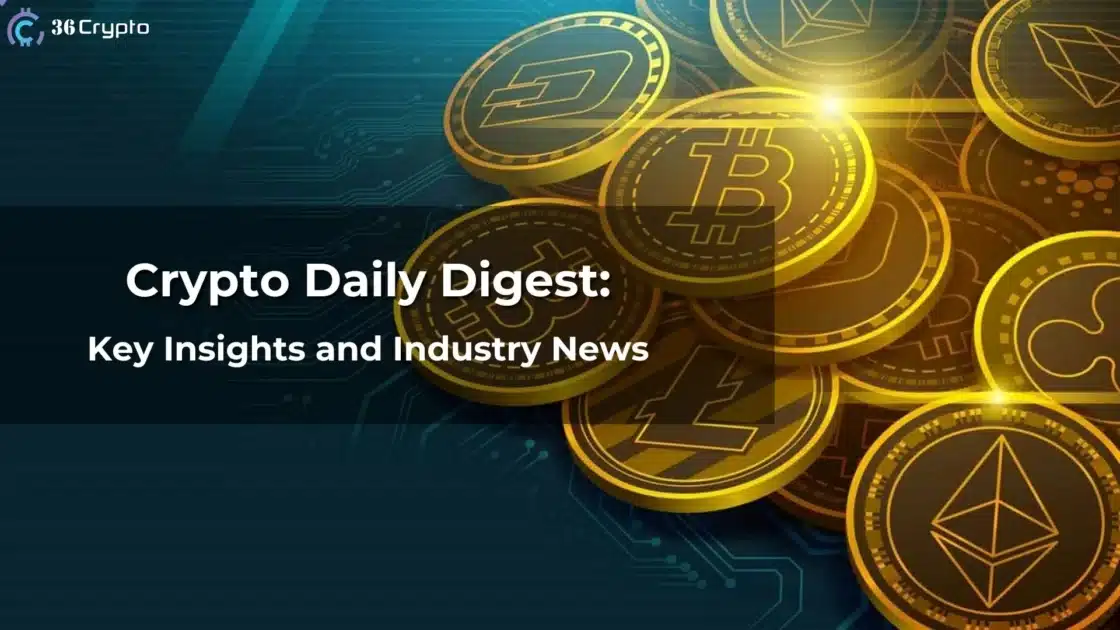Rumors about a mini-game on Telegram from Binance are not just rumors. A brain implant from Synchron allowed a person to control a smart home with the power of thought. What else is interesting? Read the new crypto news digest.
BlackRock and Microsoft to Create a Fund to Invest in AI
The largest technology companies BlackRock, Global Infrastructure Partners (GIP), Microsoft, and MGX have announced the launch of the Global Artificial Intelligence Infrastructure Investment Partnership (GAIIP). The initiative envisages the creation of a $30 billion fund to finance projects in this area.
As stated in the press release, the goal of the partnership is to meet the growing demand for computing power. The fund will focus on supporting infrastructure projects, including data centers and new energy sources for them. The project will provide participants with access to a large ecosystem. In particular, Nvidia will provide its support.
The partnership is expected to attract up to $100 billion in total investment potential with equity capital of $30 billion from venture capital companies, corporations, and individuals. The general partner of the fund will be MGX, an Abu Dhabi-based company.
Read Also: Cardano Dominates Weiss Crypto Poll, Securing Best Technology Vote
Binance Confirms the Launch of a New Telegram mini-game, Moonbix
At the beginning of the week, rumors spread on social media about the launch of a new space-themed mini-game for Telegram called Moonbix by cryptocurrency exchange Binance. In it, players control a spaceship using a claw-like manipulator to collect items such as yellow stones and gifts scattered across galaxies. Several X (formerly Twitter) accounts posted screenshots of the game, suggesting that it might bear some resemblance to traditional gold mining games. However, the company did not make any official announcements at the time. Nevertheless, on 17 September, Binance’s customer support team confirmed on its X-account that the company would soon launch the game.
“We’re aware that our upcoming TG mini-app game, Moonbix, was leaked ahead of the planned launch date. While we’re thrilled by the community’s response, we’re still fine-tuning the product to ensure the best user experience on the official launch.” the publication says.
The team also apologized for any inconvenience caused, adding that they are looking into individual cases of users affected by the leak. They also advised users to be wary of impersonation accounts and to use only the official Telegram bot and advertising channels provided by Binance.
It is worth noting that the cryptocurrency exchange is not the first to launch mini-games on Telegram. In particular, since the beginning of the year, some other exchanges have released their games, namely: OKX Racer by OKX, Pocket Rocket by WhiteBIT, xKuCoin by KuCoin, etc.
Google Cloud Launches Ethereum-compatible Blockchain RPC Service
On 17 September, Google Cloud announced in its blog post the launch of the Blockchain Remote Procedure Call (RPC) service to make it easier for cryptocurrency developers to interact with blockchain data and increase the reliability of decentralized applications (DApps).
RPC is a software communication protocol used by one application to request a service from another application located on a different computer and a different network. As noted in the publication, the new service will initially be compatible with the main and test Ethereum network, and next year it is planned to expand to additional blockchains.
Initially, the service will launch with a free tier that offers up to 100 call requests per second and one million requests per day with support for EIP-1474, a defined set of RPC methods for Ethereum nodes. Google Cloud said that its Blockchain RPC is fully compatible with Ethereum’s JSON-RPC standard, allowing cryptocurrency developers to integrate it into Ethereum-based DApps with a single line of code.
Read Also: Shiba Inu Ecosystem Gears Up for Evolution, TREAT Token to Play Key Role
1inch Has Introduced a New Upgrade
On 18 September, the decentralized exchange 1inch announced the next iteration of the Fusion 2022 update for its Swap Engine, known as Fusion+. The new feature allows users to exchange cryptocurrencies between multiple blockchain networks while fully preserving their tokens.
In addition, it pools liquidity both inside and outside the chain ‘to ensure convenient and secure exchanges’ and offers ‘built-in protection’ against attacks to maximize the value mined. Fusion+ is powered by atomic exchange technology that ensures the security, reliability, and efficiency of cross-chain transactions while avoiding the vulnerabilities associated with traditional cross-bridges.
1inch initially announced its plans to introduce Fusion+ in a blog post dated 12 September, where it pointed to issues such as the security risks of centralized cross-chain bridges, the inefficiencies of decentralized solutions, and the complexity of current cross-chain processes.
Brain Implant Made an Opportunity to Control a Smart Home with the Power of Thought
Neurotechnology company Synchron has shared a video of a 64-year-old man named Mark, who suffers from ALS, controlling electronic devices with Amazon’s Alexa virtual assistant using a brain implant.
Synchron develops brain-computer interfaces (BCI) for paralyzed people. Previously, it integrated its solution with the Apple Vision Pro mixed reality headset, allowing Mark to control the gadget with his mind. The new video demonstrates the possibilities of interacting with smart home electronic devices. The patient answered video calls and controlled the TV.
BCI technology has gained popularity after successful operations performed by Elon Musk’s Neuralink company. In January, it implanted a brain chip in the first volunteer, Noland Arbaugh. In August, it was announced that the second patient underwent surgery. In a few weeks, he learned to play video games and use 3D object design software. However, it was not without difficulties, as about a month after the operation, Arbo’s neural filaments disconnected from the brain due to its displacement during pulsation.
Unlike Neuralink, which performs brain surgery, Synchron integrates its device in a less invasive way into a blood vessel on the surface of the motor cortex.
Read Also: Bitcoin ETFs See Significant Inflows, BlackRock’s iShares Bitcoin ETF Underperforms
